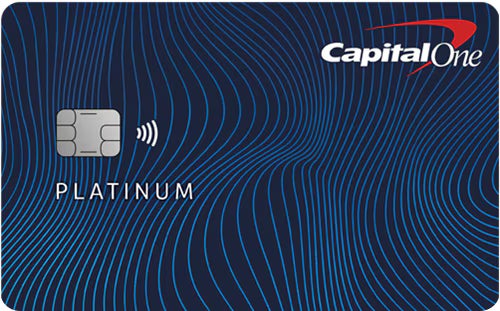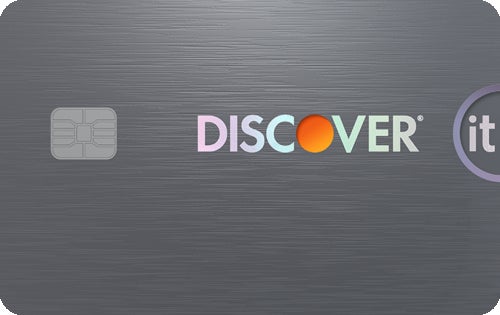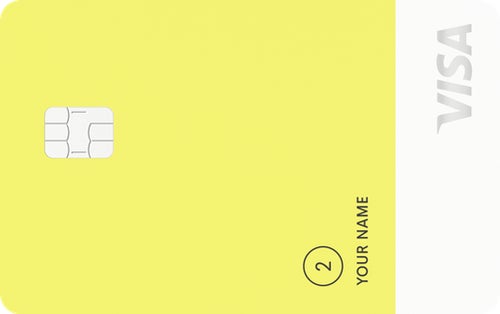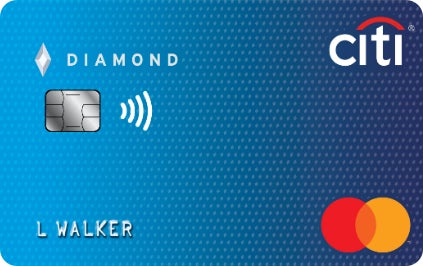| Credit Building Rating: | 3.1 / 5 |
| Cost of Membership | 3.0 |
| Ease of Building Credit | 3.5 |
| APR | 4.0 |
| Features | 1.3 |
In a Nutshell:
A good starter card for those who are new to credit, the Citi Secured Mastercard allows cardholders to jumpstart their credit history without committing to a high annual fee.
All information about the Citi Secured Mastercard has been collected independently by CreditCards.com and has not been reviewed by the issuer.
Average cost of membership per year ($3,600 annual spend) |  |
Security deposit required |  |
Initial credit limit |  |
Access to higher credit line? |  |
APR |  |
Annual fee |  |
Other rates and fees
|  |
Rewards |  |
Features: $0 fraud liability on unauthorized charges, identity theft assistance
If you’re looking for a basic, no-frills secured credit card to help you build credit history (and you don’t plan on carrying a balance), then the Citi Secured Mastercard could be a great starting point. Though it’s no doubt a plain vanilla credit-builder card, it comes at no cost if you pay your balance on time and in full and also offers a generous maximum credit limit, which could make a big difference as you try to keep your credit utilization in check.
Don’t plan on using this card to finance purchases, though, since its APR is very high and interest charges will quickly add up. The card also charges higher fees than many of its competitors and doesn’t offer any rewards or impressive card benefits. While it should do the job as a starter solution, you should do your best to graduate to an unsecured card and enjoy lower rates and fees and better benefits as soon as you get the chance.
Why you might want the Citi Secured Mastercard
One of the great things about secured cards like the Citi Secured is that by putting some financial skin in the game through your deposit, you lessen creditors’ financial risk and make them more willing to welcome – rather than reject – you. You are then able to start building your credit and can eventually graduate to an unsecured card. With the Citi Secured card, there are no predatory or annual fees making this very basic card a good option for those starting their credit journey. Even with a thin credit file, you can start building your score with the Citi Secured card while avoiding an annual fee, activation fee or some of the other hefty fees all too common on credit-building cards.
The card’s high maximum limit could also be a big plus if you can afford to put down a large deposit, as this will give you much more room to breathe when trying to minimize your credit utilization.
Get started with no annual fee
While the Citi Secured card is far from the only secured credit card that charges no annual fee, its low cost is still a major selling point. Many secured cards charge annual fees as high as $35 to $49 while offering next to nothing in the way of perks or benefits outside of helping you build credit, making it tough to justify carrying them long-term. That’s to say nothing of unsecured credit-building cards, which can charge especially eye-popping annual fees, sometimes close to $100 per year, with many increasing their cost in year two and beyond.
Fortunately, as long as you pay your balance on time and in full, it should cost you nothing to keep the Citi Secured card in your wallet, allowing you to focus your energy on building positive financial habits and improving your credit score.
Relatively high maximum credit limit
Another key advantage of the Citi Secured card is its wide credit limit range, with a relatively large maximum deposit limit and corresponding high credit limit for a secured card. Citi allows cardholders to put down up to $2,500, for which you can receive a matching credit limit of up to $2,500. While that’s not the highest limit we’ve seen on a secured card, it beats out a fair number of competitors, many of which offer limits of just $500 to $2,000.
A decent credit limit paired with a low balance can add a significant number of points to your credit score due to the impact credit utilization – the amount of money you’ve borrowed relative to your total available credit – has on your credit score (30% according to the FICO credit scoring model). If you are able to put down a large refundable deposit on the Citi Secured and maintain low credit utilization by paying off your balance and avoiding maxing out your card, the Citi Secured card’s relatively high maximum limit could help fast-track your credit-building efforts.
Tip: If you can afford to put down more than $2,500 at once, you may want to look for a secured card that allows for bigger limits.
Why you might want a different card
While you won’t have to pay an annual fee with the Citi Secured card, it may still prove too pricey in the short term. The card’s minimum security deposit of $200 could be a deal-breaker if you’re short on cash or want to avoid tying up money for several months or more. That’s doubly true considering the card only carries minimal perks like fraud and identity theft protection and offers next to no tangible benefits – beyond its credit-building potential – that help justify having to temporarily tie up hundreds in a deposit.
You’ll need to put down a moderate deposit
Like all secured cards, the Citi Secured card requires you to put money down to secure your card in case you fall behind on payments. A minimum deposit of $200 is required to secure a $200 credit limit. While that’s lower than the deposit amount required by some issuers, it’s still relatively high. The Capital One Platinum Secured Credit Card, for example, allows you to put down as little as $49 as a deposit and still get a $200 starting credit limit, so tying up an extra $151 with the Citi Secured card is hard to justify.
No rewards or notable benefits
Like many secured cards, the Citi Secured card doesn’t offer a rewards program. If you’re hoping to earn points for travel or a bit of cash back in return for your spending, then you’ll want to consider an alternative card. Other secured card options may not offer the high cash back rates you’ll find on the best unsecured cards, but you can still earn at least 1% back on all eligible purchases with the right secured card.
The Discover it® Secured Credit Card, for example, offers a modest cash back program that gets you 2% cash back at gas stations and restaurants (on up to $1,000 in purchases per quarter, then 1%) as well as 1% cash back on other purchases. If a card’s rewards categories line up with your spending habits, that could add up to a solid amount of cash back each year.
The Citi Secured card also doesn’t offer many benefits like travel or shopping protections and even charges a 3% foreign transaction fee, making it a poor choice if you regularly travel abroad.
While you shouldn’t expect a ton of perks on a starter card, this shortcoming coupled with the cards lack of rewards make it fall short of some of the top cards available at this price and credit level. The card does offer free FICO score access and fraud protection on unauthorized charges, however, and assistance if you become a victim of identity theft.
How does the Citi Secured card compare to other credit-building cards?
Thanks to its low cost and simplicity, the Citi Secured card can be a good option if you’re just starting on your credit building journey, but a few competitors have a clear advantage over this card due to their lower deposit requirement and extra perks. Check out these alternatives:
 Capital One Platinum Secured Credit Card
|  |  |
| Rewards rate None | Rewards rate
| Rewards rate
|
| Credit limit See terms | Credit limit See terms | Credit limit $300-$10,000 |
| Annual fee $0 | Annual fee $0 | Annual fee $0 |
Other things to know
| Other things to know
| Other things to know
|
Citi Secured card vs. Capital One Platinum Secured Credit Card
A big win for the Capital One Platinum Secured Credit Card are its friendly user terms and low entry barrier. With a minimum $49 deposit (depending on your credit) you can have this card in your wallet with a $200-$1,000 initial credit limit (depending on your deposit). The fees associated with this card are few and you don’t have to worry paying an annual fee either. However, its variable APR is high and we would highly recommend against carrying a balance with this card since it could accrue some hefty interest charges.
Citi Secured card vs. Discover it® Secured Credit Card
With a similar security deposit to the Citi Secured card, the Discover it® Secured Credit Card has an edge over with a cash back program cardholders can enjoy. This card gives 2% cash back at gas stations and restaurants (up to $1,000 in purchases per quarter) and 1% back on other purchases you make. You even get your cash back matched at the end of your first year to add on to your everyday spending rewards. For a card that falls within the same credit range needed to qualify for the Citi Secured card, this could be a better option if earning rewards and gaining access to higher credit line in a short amount of time, is important to you.
Citi Secured card vs. Petal 2
The Petal 2 card is not your typical credit-building card. For starters, you are not required to put down a security deposit and you have a chance at a credit limit as high as $10,000 based on your credit score. There are no penalty or foreign transaction fees to worry about and its unique cash back program gives you the opportunity to boost your rewards rate with responsible use: As soon as you get your card, you can earn 1% cash back on eligible purchases, up to 1.5% back on eligible purchases after making 12 on-time monthly payments and 2%-10% back on select merchants.
How to use the Citi Secured card
- Avoid charging more than you can afford to repay in full. The APR on this card is steep.
- Expand your available credit by securing the card with as large a deposit as you can afford.
- Don’t close this card once you’ve improved your credit and upgraded to better cards – especially if this is your first card. Accounts with long, positive credit histories are great for your credit score.
Is the Citi Secured card right for you?
Thanks to its low cost and simplicity, as well as its relatively high maximum credit limit, the Citi Secured could be the right fit for you as you learn to navigate the credit card space. While the card is clearly lacking in some areas, such as rewards, it makes sense as a low-risk option if all you’re looking for is a basic credit card you can use to make everyday purchases and work on your credit score. That said, there are other cards available with limited credit or no credit that offer lower minimum deposits, higher maximum limits and even cash back rewards programs.
All reviews are prepared by CreditCards.com staff. Opinions expressed therein are solely those of the reviewer and have not been reviewed or approved by any advertiser. The information, including card rates and fees, presented in the review is accurate as of the date of the review. Check the data at the top of this page and the bank’s website for the most current information.
Responses to comments in the discussion section below are not provided, reviewed, approved, endorsed or commissioned by our financial partners. It is not our partner’s responsibility to ensure all posts or questions are answered.
